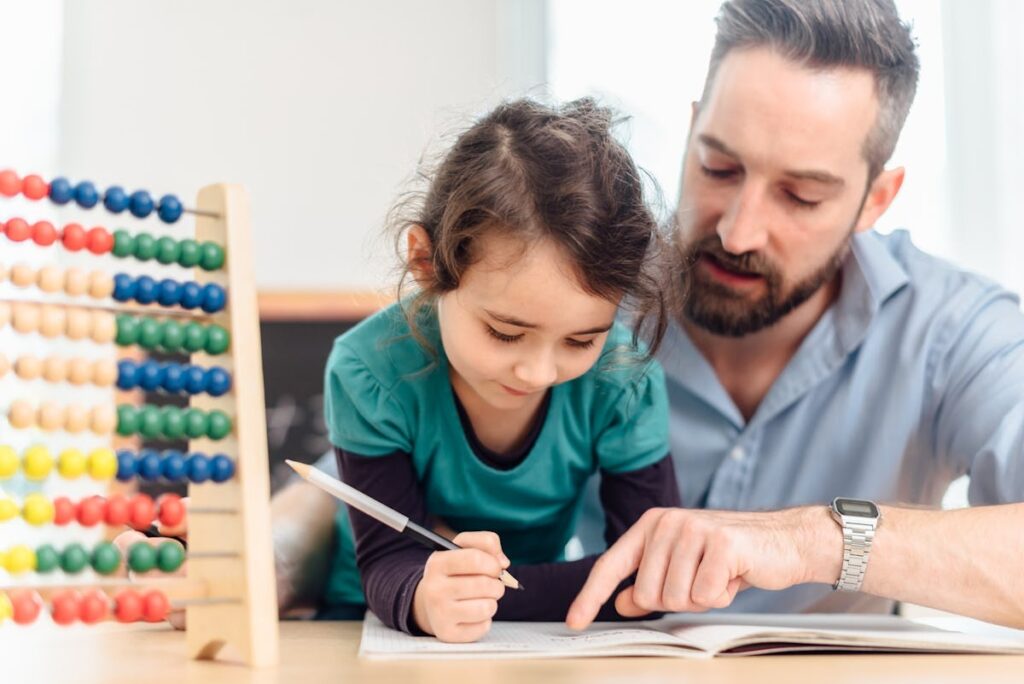A few months ago, I found myself in an unexpected high-stakes situation. It didn’t involve a film set or a keynote stage but rather my kitchen table, a stack of math assignments, and my daughter, who was quietly spiraling under the weight of self-doubt and frustration.
Math had become a battleground. Her grade had slipped to a 63—low enough to feel like an insurmountable wall. She doubted her ability to learn, feared she couldn’t turn things around, and didn’t know who to talk to or what to ask. She was stuck, scared, and overwhelmed, a bundle of nerves every time the subject came up.
At first, I gave her space. I encouraged her to take ownership of the situation, hoping she would find her way through. I kept a close eye on her progress, offering support when needed but waiting for her to act. Over time, though, it became clear she was paralyzed by the stress. Her confidence was crumbling, and her anxiety was mounting. It wasn’t just about math anymore—it was about her belief in herself.
So, I stepped in.
The Plan: Focus on Progress, Not Grades
The first thing I told her was this: we weren’t going to focus on her grade. Grades are just feedback—they reflect where you are right now, not where you’ll end up. What mattered to me was helping her build her math knowledge, her confidence, and her ability to approach challenges with persistence.
We created a plan. Any assignment or test with a score below 80% would become an opportunity for improvement. We’d review what she missed, figure out why, and work together to ensure she understood the material. Retakes, when available, weren’t just about trying again—they were about trying better, equipped with the knowledge she needed to succeed.
This approach wasn’t just about problem-solving; it was about laying a foundation for confidence and resilience.
Focusing on the Present
One of the most important lessons we practiced together was staying in the present moment. Worrying about past mistakes or future outcomes didn’t help. What mattered was the assignment in front of her and the effort she put into it.
We worked on math a little every day. Step by step, problem by problem, she started to see her abilities grow. With each small win, her confidence increased.
By the end of the semester, her grade had risen from a 63 to a 91. But more importantly, she began to see herself differently. She wasn’t someone who “wasn’t good at math.” She was someone who could learn, adapt, and overcome.
The Key Takeaways
This experience was a powerful reminder of what’s possible when we approach challenges with the right mindset and strategies. Whether you’re a student struggling with math or a professional navigating high-stakes environments, the lessons are universal:
- See Challenges as Opportunities
Struggles aren’t failures; they’re chances to grow. For my daughter, math became an opportunity to build her confidence, reduce her stress, and bond with her dad. - Focus on the Present
The past is done, and the future is unwritten. Success happens in the moment, one step at a time. - Celebrate Effort Over Outcomes
Achievements are great, but the process that leads to them is what matters most. By emphasizing her persistence and attitude, I helped her see the value of her work—not just the result.
Why This Matters
As someone who works in performance psychology, this experience reinforced the importance of focusing on the fundamentals. High-stakes situations—whether in academics, athletics, or professional settings—aren’t about innate talent or avoiding mistakes. They’re about showing up, staying present, and putting in the work.
When I coach individuals and teams, I use a similar approach: breaking challenges into manageable pieces, emphasizing progress over perfection, and helping people unlock their potential. My daughter’s success reminded me just how powerful those principles can be—not just professionally, but personally.
A Shared Journey
By the end of the semester, math had become more than equations and grades for us. It was a shared journey of learning, persistence, and connection. Her confidence soared, and I got to witness her growth firsthand.
This process wasn’t just about her; it was about us. It strengthened our relationship and reminded me why I do the work I do—to help people realize they’re capable of so much more than they think.





